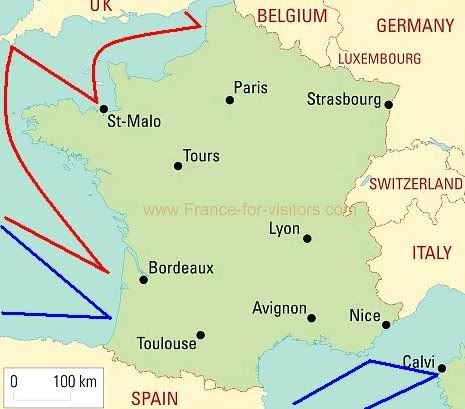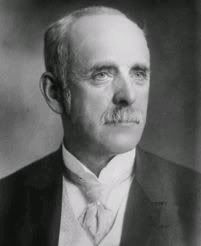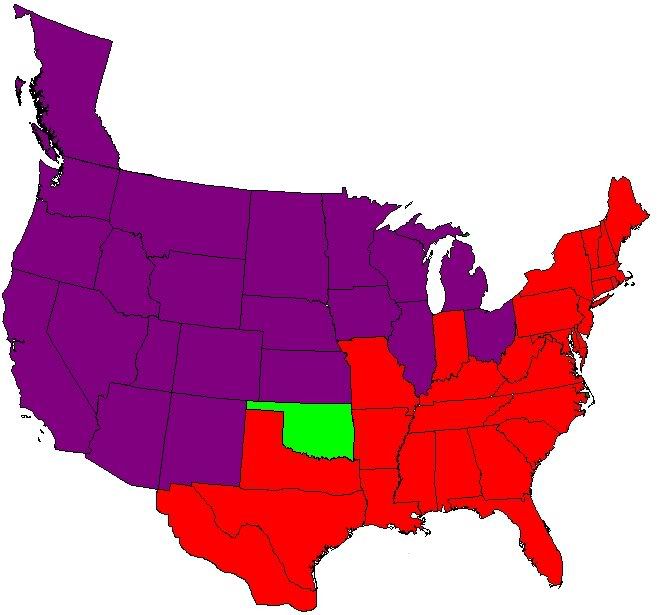The Indochina Experience and the Election of 1908
~~
With the victory on the high seas, the American navy was dominant, and American military power could suddenly be unleashed everywhere. However, there existed a serious problem for the Americans. Unlike the war with Spain, where the relatively unindustrialized European kingdom was invaded and, in a relatively low-cost way, defeated, France would prove a major problem to overseas invasion. The French railroad system was heavily developed, and after the Franco-Prussian war, the French were very aware of the power of a mobile army. Any American landing would be under heavy pressure, and immediately met by the French army, at a heavy cost. And the French Army, like the French navy, was the equal to the Americans in a straight up battle.
The situation was compounded by the slow-going invasion of French Guyana, where French colonial forces had dug in and were forcing General Bullard into a slow grueling offensive. For President Clough, who was worried that his own party may look elsewhere without immediate victories. For a nation that had been in three wars in the last three presidential terms, the American people were ready to return the focus of the White House back to the domestic issues. And so President Clough turned to his cabinet to devise a plan for striking the French, and forcing a negotiated peace. Leaving them to it, he turned to the campaign trail to maintain the Republican gains of 1904. The plan the cabinet came up with was an attempt to further drag France's international reputation down, and force the French to save face and end the war.
Secretary of the Treasury, Leslie M. Shaw
The plan which arose came from the most unlikely places. Secretary of the Treasury, Leslie M. Shaw, designed an 'affordable offensive', one that involved the use of troops already abroad, and local loyalist militias from the Philippines. This plan called for an invasion of Southern Vietnam, a direct strike into the strongest French international presence. Shaw rightly supposed that a conquest of Indochina would be an international slap in the face of the French, a reminder to the world that they could not protect their colonial possessions. The endgame was not conquest, as the amount of land and men involved would never be approved, but an assault was fine. With hasty approval, Clough ordered General Joseph Lawrence, with 8 divisions, supported by the US Pacific Fleet, to land in the south of Indo-China and make his presence known. The French garrison in the South and in Cambodia rushed to meet the Americans, but even the Filipino militias were match enough for the under equipped colonial defenders.
The victory was triumphed across the Papers as a killing blow against the French. It wasn't, as the French government refused to even approach the Americans about ending the war. Instead the French watched with interest as the British Empire mobilized itself. The British and the Russians had been battling for control over the collapsing Persian Empire. Although the conflict had been a proxy war for years, the final straw was broken and war was declared. British Canada pressed its way into Russian Alaska as the British navy made its way into the Baltic Sea hoping to confront and sink the Russian navy. This was the international backdrop for the Election of 1908.
Once again Eugene V. Debs hoped to mobilize the Socialist party to back him, and he easily carried his party's nomination. Clough and Bacon presented a strong front against him, still well in control of the Deep South (with the National Party's endorsement) and New England. The real question is where the Midwest would go. The Socialists strong support for old Populist politicians made the Republicans nervous that with a slowly unpopular war, the Socialists could swing the election their way. The battle ground would take place over seven key states, Ohio, Missouri, Louisiana, Illinois, Indiana, Iowa and Virginia. Each state, with the exception of Louisiana, had a long history of Populist support. Both Virginia and Indian had both swung heavily to the Republicans in the last election, and although the Republican lead was slipping, the states still looked to carry by a 60-40 margin. Illinois, and specifically Chicago, who's mayor Carter Harrison Junior had swung his support behind Debs, was clearly going to the Socialists. That left 4 states.
Debs had made huge gains in the blue collar districts of Cleveland and Cincinnati, while the Republicans clearly carried the rural areas, mostly on the war campaign. But when the Governor of Ohio, Andrew Harris, an esteemed Populist, turned his support to Debs, the state went with him. Suddenly the large lead that had carried Clough into the White House was narrowing. But then the Nationalists made their move. Governor Goebel had slowly, sometimes in rather dubious ways, spread his influence. Francis Marion Cockrel, the Missouri Senior Senator, had been ousted in 1905 by Nationalist candidate William Warner. In the three years since his election, Warner had swayed a great deal of political support, and established a Nationalist infrastructure. He unleashed it to support Clough. With Missouri went Texas and Louisiana, and the election of 1908.
David Clough and Robert Bacon- Republican- 320
Eugene V. Debs and Henry Gage- Socialist-166






